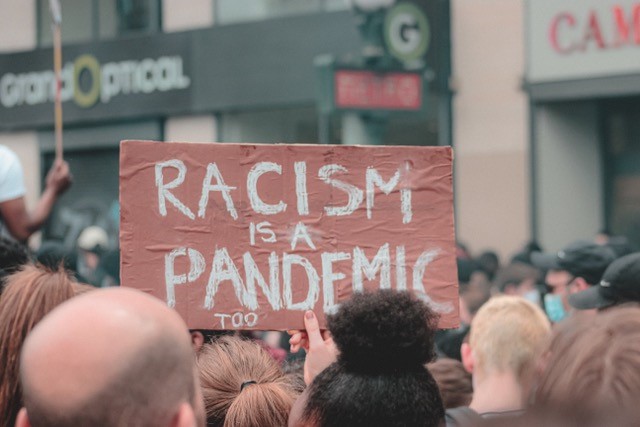RAPE CULTURE AND THE HARMFUL CONSEQUENCES OF VICTIM BLAMING
According to RAINN, the leading anti-sexual assault association in the United States, every 73 seconds a US citizen is sexually harassed. As stated in this survey regarding England and Wales, since the age of 16, 1.6 million people aged 16 to 74 have been sexually assaulted. The data on rapes is worrying, especially since a large number of victims do not report the incident. What is even more alarming is how the community perceives the issue. ‘Rape culture’ is a term used since the 1970s to describe a situation where sexual abuses are normalised, perceived as common, and accepted by society. Moreover, rapists are protected while the victims are shamed and held responsible for offenses they don’t commit but suffer.
Victim blaming
One of the main issues this rape culture comes with is the blame assigned to the assaulted ones. Instead of being considered as victims, they are seen as those who actually incited the rapist. This becomes evident especially when the victims are females.
 What were you wearing?: victims are often asked what they were wearing when they were assaulted as if it was obvious that wearing a certain kind of clothing provokes others into being abusive. Some people assume that, by wearing revealing clothing or bright colours, one should expect to be assaulted and, consequently, to avoid such an episode, you should wear different clothes. However, it is not the outfit that incites rape. To prove this, in 2018, in Bruxelles, they held an exhibition named ‘Is it my fault?’, where they displayed the clothes worn by rape victims when they were attacked. The collection included pyjamas, tracksuits, jeans, and basic t-shirts. What this exhibition tried to clarify is that everyone should be free to wear the clothes they feel most comfortable and empowered in, without being scared of being assaulted. In addition, wearing certain clothing should not be considered as consent: it is only the individual that can decide what is going to happen to their body, regardless of the way they are dressed.
What were you wearing?: victims are often asked what they were wearing when they were assaulted as if it was obvious that wearing a certain kind of clothing provokes others into being abusive. Some people assume that, by wearing revealing clothing or bright colours, one should expect to be assaulted and, consequently, to avoid such an episode, you should wear different clothes. However, it is not the outfit that incites rape. To prove this, in 2018, in Bruxelles, they held an exhibition named ‘Is it my fault?’, where they displayed the clothes worn by rape victims when they were attacked. The collection included pyjamas, tracksuits, jeans, and basic t-shirts. What this exhibition tried to clarify is that everyone should be free to wear the clothes they feel most comfortable and empowered in, without being scared of being assaulted. In addition, wearing certain clothing should not be considered as consent: it is only the individual that can decide what is going to happen to their body, regardless of the way they are dressed.- Alcohol and drugs consumption: victim-blame also occurs when a sexual harassment victim is under the effect of alcohol and/or drugs and, therefore, unable to express their consent. As to either give or deny their consent one should be able to verbalise a ‘yes’ or a ‘no’, having intercourse with an unconscious person has to be considered harassment.
- What was your reaction?: victims of sexual assaults are asked how hard they fought back. With this question, they are accused of not having done enough to escape from the situation. We must be aware that this assumption is extremely dangerous as it can lead to the victims blaming themselves and avoid filing a report.
Education, freedom, and law
 From an early age, people are educated to avoid some behaviours in order to prevent sexual assaults. When it comes to young people, they are told not to hang out in certain areas when they are alone, they are advised to stick with a group of people they trust and always be on alert. Of course, everyone should be aware of what are potentially dangerous areas and circumstances, but assigning the victims all the responsibility for their safety and accusing them if they do not succeed in that leads people to feel insecure and forces them to give up their freedom. Instead, the priority should be to spread awareness on the fact that committing rape is an issue of the utmost seriousness and that offenders are prosecuted by law. But how does the law protect the victims’ rights and prosecute the assaulters? As explained in this article, in the US about only 0.7 per cent of sexual assaults result in the offender becoming convicted of a crime. As long as Governments do not produce laws that accuse sexual abuse as a serious crime and that have concrete consequences on offenders, victims will continue to feel unprotected and shamed by the society they live in.
From an early age, people are educated to avoid some behaviours in order to prevent sexual assaults. When it comes to young people, they are told not to hang out in certain areas when they are alone, they are advised to stick with a group of people they trust and always be on alert. Of course, everyone should be aware of what are potentially dangerous areas and circumstances, but assigning the victims all the responsibility for their safety and accusing them if they do not succeed in that leads people to feel insecure and forces them to give up their freedom. Instead, the priority should be to spread awareness on the fact that committing rape is an issue of the utmost seriousness and that offenders are prosecuted by law. But how does the law protect the victims’ rights and prosecute the assaulters? As explained in this article, in the US about only 0.7 per cent of sexual assaults result in the offender becoming convicted of a crime. As long as Governments do not produce laws that accuse sexual abuse as a serious crime and that have concrete consequences on offenders, victims will continue to feel unprotected and shamed by the society they live in.
As a community, we should all respect the victims and be supportive and sympathetic.
If you are a victim, do not blame yourself and seek for professional help and support. You are not defined by what others did to you.

